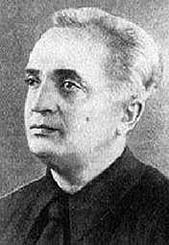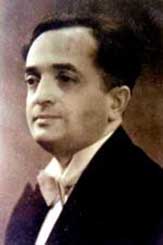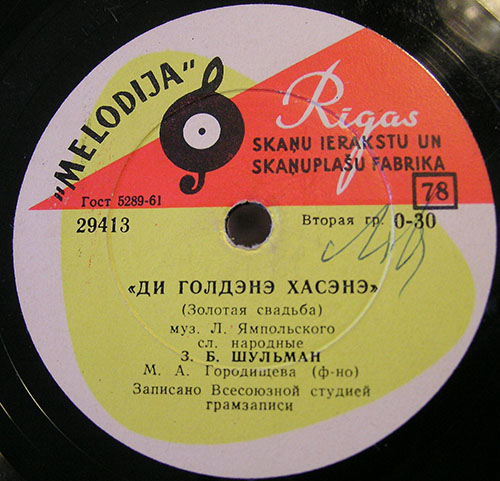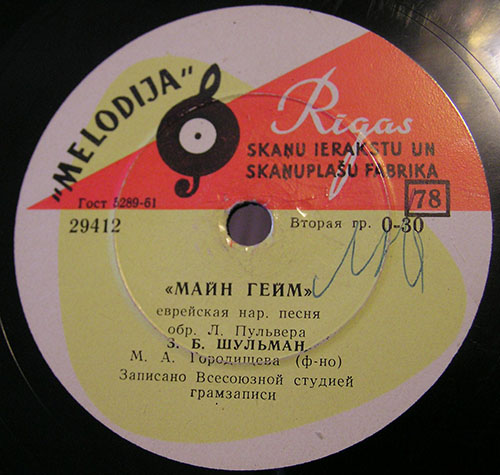Shulman finished college in Odessa. He graduated from the Odessa High School, studied singing at the Odessa Opera with V. Seljavin.
(Viktor Alekseevich Seljavin, 1875–1945, was a leading
tenor of the Odessa opera.
He is often referred to as Odessa's Sobinov.
His repertoire included the tenor roles of most major operas,
but he was best known for his interpretion of Lenskij.
In 1920, Seljavin was appointed professor at the conservatory of Odessa. In the 1930s, he was also director of the Odessa
Opera and Ballet Theater.)
On Seljavin's advice, he later went to Moscow to continue his studies; he sang there in an amateur ensemble and studied with D. Gorin.
Shulman started performing in 1923. In 1924, Shulman
made his first tour with the Brigade of the Union of Artists (Rubis) in Ukraine.
Shulman gave his first solo concert in Odessa in March 1925 with a Jewish program of songs and ballads.
In 1929, after a contest before a commission headed by Rubis secretary F. Kohn, Shulman was included in a group
of young singers chosen to finish their training in Italy. However, the trip was cancelled. Shulman studied at the State Institute
for Theatrical Arts in Music and Drama, graduating in 1934.
In 1934/35, Shulman was a soloist with the Stanislavskij Theatre.
In 1935, Shulman dedicated his life to exclusively collecting and performing Jewish songs, including a program of opera arias in
Yiddish.
His programs consisted of poems by P. Markish, I. Feffer, S. Galkin set to music by Jewish composers M. Weinberg, L. Kogan, H.
Kompaneets, L. Pulver and others.
In 1939, he won the first National Contest for Variety Artists (Moscow). During the war, Shulman sang in concerts for the front
line soldiers and in army hospitals, as well as four concerts in Moscow, organized by the Jewish Antifascist Committee. He was extremely popular with the
public, including non-Jews.
In 1948 at a concert in Moscow, Shulman met Golda Meir (then the Israeli ambassador to the USSR), and a few days later,
at her request, he performed at the Moscow Choral Synagogue Kaddish and El moleh rahamim for the victims of the holocaust.
In 1949, after a concert in Kislovodsk, Shulman was arrested. At a closed hearing in Kiev, he was accused of Jewish nationalism
and sentenced to ten years imprisonment. In 1956, he was rehabilitated and returned to Moscow and resumed his concert activity.
He participated in the productions of the Moscow Jewish Drama Ensemble, performing Jewish folk songs.
Shulman was engaged in teaching, published a Collection of Jewish songs from the repertoire of Zinovij Shulman (Moscow, 1973),
and his memoirs Life, my song. Notes of a singer
In 1997, Shulman was posthumously awarded the title of Asir Zion (Prisoner of Zion) in Israel.
Many recordings by Shulman exist. He is singing in Yiddish. We do not know of any recording of an operatic aria.
Reference 1
Reference 2



